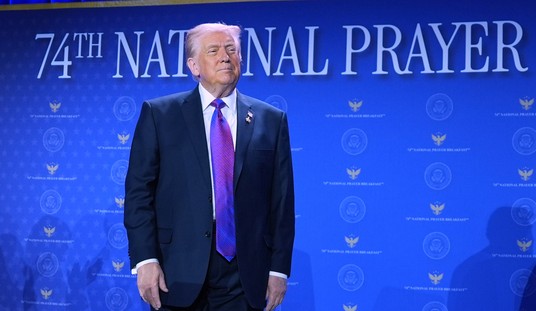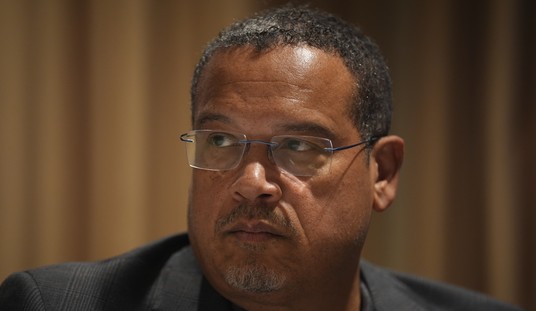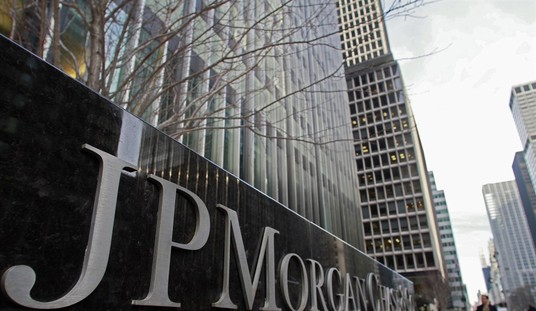Talk about mixed messages. While Pyongyang blusters about re-entering a state of war with Seoul and Washington and announces that its missiles are on alert and aimed at American targets, the Kim regime suddenly made its only known “reformer” the official face of the Kim regime:
North Korea’s parliament named former premier Pak Pong-ju, who was sacked in 2007 for failing to implement economic reforms, as its prime minister on Monday in a move that cements the grip of the ruling Kim dynasty on key posts in the country.
Pak, believed to be in his 70s, is a key ally of Jang Song-thaek, the uncle of the isolated state’s ruler Kim Jong-un, and worked for Jang’s wife, Kim’s aunt Kim Kyong-hui.
What’s going on? The Reuters report makes it sound as though Kim Jong-un has managed to get around the grip of the military in Pyongyang. Pak’s re-emergence follows the rehabilitation of Kim’s uncle, and negates a move made by the military six years ago:
Pak is a career technocrat, took the post of premier in 2003 to implement an ambitious economic reform policy that allowed autonomy in farm production and pricing liberalization that was brought in in July 2002.
But he was removed in 2007 when it became clear the steps aimed at boosting the impoverished state’s economy, which had experienced devastating famine in the 1990s, were not producing desired results and the North’s military began protests at the cabinet, wielding greater power on state matters.
The Washington Post’s Max Fisher warns not to expect much:
North Korea has appointed Pak Pong Ju, known as a reformer, as the country’s next premier, a job that officially makes him the head the national government. How big of a deal is this? Is Kim Jong Un signaling his desire to finally open up North Korea to the world? Sadly, we should probably set our expectations for “reform” pretty low. …
But Pak, whatever his ambition for reform, didn’t really live up to the world’s hopes last time around. Though he was sometimes compared to the Chinese leader Deng Xiaoping, who transformed China in the early 1990s by liberalizing its economy, the two countries are more different than they might sometimes appear.
North Korea’s state ideology is about much, much more than socialism or command economics; it’s first and foremost about the fervent worship of the Kim family regime. Pyongyang’s governance style is what’s called “military-first.” Whereas almost every other country on Earth is “economy-first,” meaning that maintaining a good economy is the top priority, North Korea’s economy is secondary to the health and power of its military. This is served, in part, by maintaining a war footing and playing up the danger of outside threats. It’s really hard to liberalize your economy when you’re busy orchestrating one episode of nuclear brinksmanship after another. And a liberalized economy is one that takes a little bit of power away from the generals and hands it to the marketplace.
Perhaps the best reason to suspect that North Korean reform is not just around the corner is the fact that it could undermine the state ideology. Kim’s father and grandfather, Kim Jong Il and Kim Il Sung, are played up constantly in North Korean propaganda as the godlike architects of their country’s flawless system. As Daniel Pinkston of the International Crisis Group wrote, “Reform in [North] Korea would require questioning what the greatest geniuses in history did wrong, and then changing it.” This is not a system that is equipped to handle change.
Still, it seems like an odd time to appoint Pak, whose presence cannot make the military very happy. Of course, they may be so happy with the war rhetoric that they figure Pak won’t be much of a threat, but those holding power in totalitarian regimes are usually very jealous of anyone who might detract from it. The events of the last few weeks have made it pretty clear that the military is still controlling events in the DPRK, so Pak’s appointment might be their way of offering the West a way to climb down after having made their point in response to the election of Park Geun-hye in December.
The latest analysis of the nuclear test in February gives another indication that the military is driving events on the peninsula:
U.S. officials and independent experts say North Korea appears to have taken unusual steps to conceal details about the nuclear weapon it tested in February, fueling suspicions that its scientists shifted to a bomb design that uses highly enriched uranium as the core. …
U.S. officials anticipated the test and monitored it closely for clues about the composition of the bomb, which was the third detonated by North Korea since 2006. The first two devices were thought to have used plutonium extracted from a dwindling stockpile of the fissile material that North Korea developed in the late 1990s.
A successful test of a uranium-based bomb would confirm that Pyongyang has achieved a second pathway to nuclear weapons, using its plentiful supply of natural uranium and new enrichment technology. A device based on highly enriched uranium, HEU, also would deepen concerns about cooperation between the hermetic regime and Iran.
Don’t expect “reform” to be front and center in the DPRK’s agenda. It’s going to take a significant level of subtlety and skill to navigate this crisis over the next several months — which is why the appointment of Caroline Kennedy as ambassador to Japan should raise eyebrows:
Caroline Kennedy has been asked to serve as the U.S. ambassador to Japan and is being vetted for the post, a Democrat familiar with the discussions told CNN on Monday.
Kennedy, the daughter of former President John F. Kennedy, was a top backer of President Barack Obama during both of his presidential campaigns and served as the co-chair of his vice presidential search committee in 2008.
She’s the only surviving member of JFK’s family and has largely shunned the limelight and scrutiny associated with her famous last name. After publicly expressing interest in running for the U.S. Senate seat in New York vacated when Hillary Clinton became secretary of state in 2009, she ultimately decided against making a bid, citing “personal reasons.”
She made speeches at the 2008 and 2012 Democratic National Conventions, both times recalling her famous relatives – in 2008, her speech served as a tribute to her uncle, Sen. Ted Kennedy, and in 2012 she noted that “like my father’s election in 1960, this is one of those elections where the future of our country is at stake.”
As Allahpundit asked in his Green Room post, why appoint someone with no diplomatic experience to a post that may have to deal with a shooting war if mistakes get made on any side? Every President appoints rich donors and campaign activists to ambassadorial positions, but usually in out-of-the-way assignments where they can do little damage. The relationship with Japan always has heavy implications for security in the Pacific and the US, but arguably more now than in decades. Yet we’re going to appoint an ambassador whose greatest qualification is that she represents the Camelot of fifty years ago, when she wasn’t even a teenager. That’s hardly smart power.








Join the conversation as a VIP Member